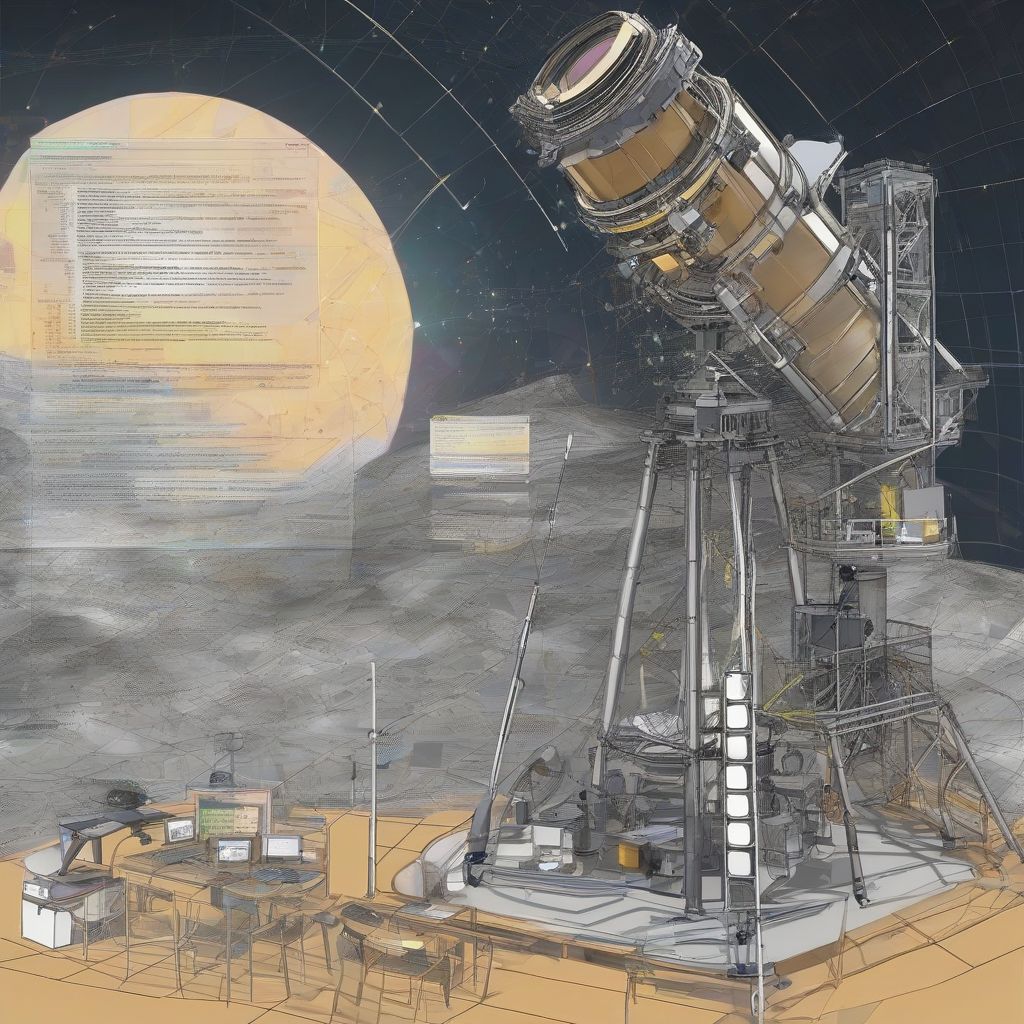Have you ever gazed up at the night sky and felt a sense of wonder, a curiosity about the vast universe beyond our planet? That same curiosity has driven astronomers for centuries, leading to groundbreaking discoveries that have impacted not just our understanding of space, but also various other scientific fields here on Earth. These impacts might surprise you – they reach far beyond the observatory and into our everyday lives.
How Astronomy Inspires Innovation
Astronomy, in its quest to unravel the mysteries of the cosmos, often pushes the boundaries of technology. The need to observe distant objects, analyze faint signals, and process massive amounts of data has led to the development of innovative instruments and techniques. These advancements have a ripple effect, finding applications in diverse fields:
1. Imaging the Invisible: From Space to Your Smartphone
Consider the cameras on our smartphones – did you know that the technology behind these powerful tiny lenses has roots in astronomy? Charge-coupled devices (CCDs), initially developed for capturing faint light from distant celestial objects, revolutionized digital imaging. Their sensitivity and ability to convert light into digital signals found applications in medical imaging, digital photography, and even barcode scanners.
2. Unveiling the Universe’s Secrets: Supercharging Data Analysis
The sheer volume of data generated by modern astronomical surveys is staggering. To make sense of it all, astronomers have developed sophisticated algorithms and software for data analysis. These tools, capable of processing, visualizing, and extracting meaningful information from massive datasets, have proven invaluable in fields like climate modeling, financial analysis, and even social media monitoring.
 Data Analysis in Astronomy
Data Analysis in Astronomy
3. Precision Timing: From Pulsars to GPS Navigation
Pulsars, rapidly rotating neutron stars that emit beams of radiation, act like cosmic clocks. Their incredibly precise timing has led to the development of pulsar timing arrays, used not only to study these fascinating objects but also to test the limits of Einstein’s theory of general relativity. The same principles of precise timekeeping underpin the Global Positioning System (GPS), allowing us to navigate with remarkable accuracy.
Astronomy’s Influence on Fundamental Physics
Beyond technological advancements, astronomy provides a testing ground for the laws of physics. By observing the universe on its grandest scales – from the behavior of galaxies to the properties of black holes – we gain insights that can challenge and refine our understanding of fundamental physics.
1. Probing the Unknown: Dark Matter and Dark Energy
Astronomical observations have revealed that the matter we see, the stars and galaxies that emit light, make up only a small fraction of the universe’s total mass and energy. The vast majority is composed of mysterious entities known as dark matter and dark energy, which we cannot directly observe. Their discovery has profound implications for our understanding of gravity and the evolution of the universe, pushing physicists to explore new theories and models.
2. The Extreme Universe: Testing the Limits of Physics
Neutron stars and black holes, remnants of massive stars that have collapsed under their own gravity, represent some of the most extreme environments in the universe. Studying these objects provides a unique opportunity to test the limits of physics under conditions of intense gravity and density, pushing our understanding of general relativity and the behavior of matter at the quantum level.
The Future of Interdisciplinary Discovery
As we continue to explore the universe and unravel its mysteries, the impact of astronomy on other scientific fields is only likely to grow. Here are a few areas where we can anticipate exciting developments:
- Astrobiology: The search for life beyond Earth is a multidisciplinary endeavor, drawing on expertise from astronomy, biology, chemistry, and planetary science. As we discover more exoplanets and develop new technologies for studying their atmospheres, the possibility of finding evidence of extraterrestrial life becomes increasingly tangible.
- Space Resources: Asteroids, with their abundance of valuable resources, hold the potential to revolutionize industries here on Earth. Astronomy plays a crucial role in identifying and characterizing these celestial bodies, paving the way for future space mining endeavors.
- Space Exploration Technologies: The drive to explore our solar system and beyond fuels innovation in spacecraft design, propulsion systems, and life support technologies. These advancements not only enable us to venture farther into space but also have applications here on Earth, leading to new materials, energy sources, and medical breakthroughs.
Our Connection to the Cosmos
The impact of astronomy extends far beyond the realm of science and technology. It inspires a sense of wonder and curiosity, reminding us of our place in the vastness of the universe. As we continue to explore the cosmos, we can be sure that the discoveries we make will continue to shape our understanding of the world around us and inspire future generations of scientists and explorers.
[amazon bestseller=”astronomy for beginners”]
